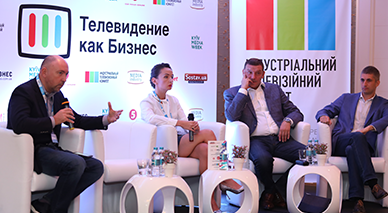
Due to the government adopting quotas for state language on air of TV stations, the productions are facing some difficulties not simply with creating high-quality content for the minimal funds available at the market but with creating content as such. The thing is, as StarMedia general producer Vladyslav Ryashin explains, that a TV channel produces content in-house, which can be in any language, including Russian, but something made by a production house is considered national, so it cannot be in Russian. Therefore, the TV channel is obliged to dub it. Moreover, if the project has been created in Ukrainian, it – as a finished product, not a format – is harder to sell abroad, because Ukrainian-speaking audience is significantly smaller than Russian-speaking one. Creating project in two languages means increasing the budget by at least one and a half times. And in the end, it might be a project with no returns on investment.
As for the expenses, in the opinion of ICTV director-president Oleksandr Bogutsky, Ukrainian TV channels have to spend at least 30 to 40 thousand USD per episode of the series, which "is still watchable", and the payback will be only about 10 thousand USD. A sitcom can be broadcast about five times; a drama series, two in most cases. In Russian, the potential for returns is higher because the project can be sold to Russia, CIS countries, and catalogues of Russian VOD services.
"Of course, we are ready to invest between 150 and 200 thousand USD in one episode," says Ryashin. "Still, in the UK the production costs for one episode of the series are 800 thousand EUR on average."